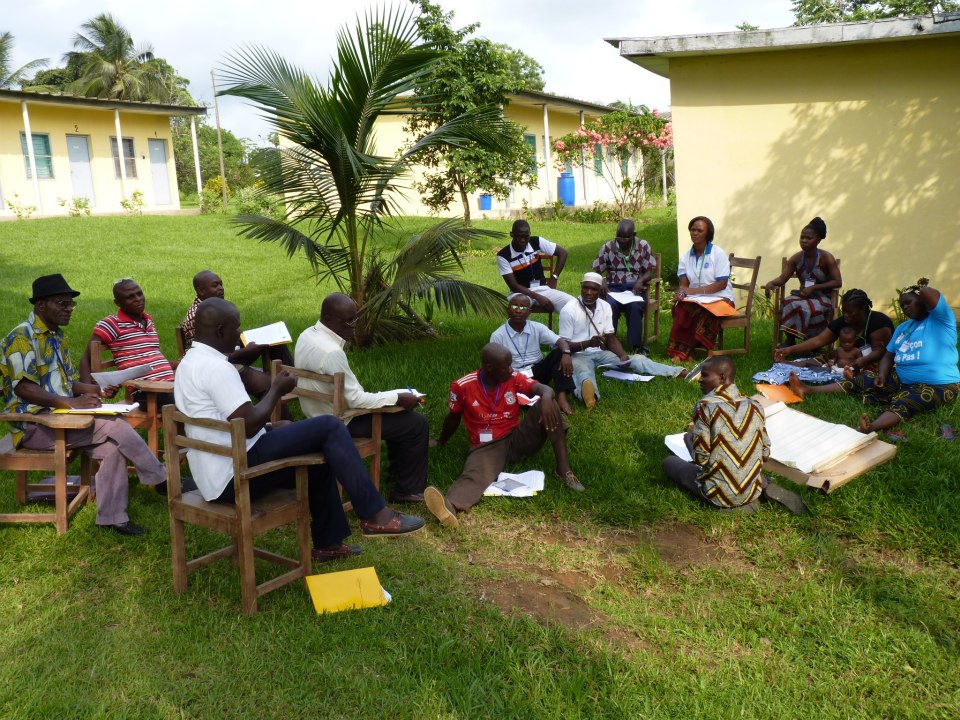Côte d’Ivoire: A space for dialogue

Recently, Interpeace brought together representatives of the population of Western Côte d’Ivoire and of the Abidjan-based local elite in Bingerville, near Abidjan. The aim of this ‘Regional Dialogue Group’ was to discuss and validate previously identified dynamics of the endemic violence afflicting the western region. The discussions were based on consultations carried out previously with more than 300 inhabitants of the region, from all social and ethnic backgrounds, to identify what they consider to be major causes of violence. The meeting presented an opportunity for participants to express their views and concerns openly and to better understand each other’s point of view.
Building trust through open discussion
Consultations carried out with representatives from all the different communities in the West of Côte d’Ivoire found that land ownership, the political manipulation of ethnicity, the weakness of the state in dealing with problematic issues, and the effects of the 2002 armed rebellion and the 2011 post-electoral crisis were the four primary issues responsible for fuelling violence in the region. The Regional Dialogue Group gave its participants a unique opportunity to validate and deepen this analysis of the situation despite their frequently diverging perceptions. Participants also agreed upon the key areas which would require further thorough action research to identify sustainable solutions to overcome these challenges.
“The talks began in a rather tense atmosphere,” shares Anne Moltes, Interpeace Programme Officer for West Africa, “but in the safe and neutral space provided for the occasion, the participants were gradually able to put their differences aside and carry out a truly constructive process.” The key finding of the meeting is that there are cross-cutting issues underlying the four main causes of violence, namely the persistence of deep cleavages and most people’s strong tendency to consider themselves the victims. “The reason why reconciliation is blocked is simple,” a participant explained. “Everyone considers they have suffered more from the war than the others. Who will reach out to their friend to ask for forgiveness?” Becoming aware of this tendency and the need to forgive were recognized as essential conditions for the establishment of a constructive dialogue.
Identifying priorities and involving the population
As the stakeholder representatives highlighted, much of the fighting in Western Côte d’Ivoire is about controlling the land. With constant uncontrolled movement across the Liberian border, land is being seized and traded illegally and refugees face sizeable obstructions upon their return. Local elites are often accused of exploiting pre-existing ethnic cleavages for their own purposes, and the state is generally perceived either as helpless or as taking part in destabilizing the region. Priority action points identified by the participants include better regulation of land ownership, tackling the feeling of injustice, pacifying political competition, making the local elite more accountable, strengthening state institutions and legitimacy and dealing with the negative legacies of the 2002 and 2011 crises.
However, the participants maintained that working to overcome people’s tendency to see themselves as the main victims is a crucial prerequisite for the effective implementation of these action points. The meeting helped show that this can be achieved by inclusive and participative dialogue. The participants felt that the dialogue process was very constructive, and recommended that it be pursued. “The momentum from the meeting was carried over by the participants as they returned to their communities and reported on the discussions and their findings,” concludes Anne.
Made possible with the support of the United Nations Development Programme (UNDP) and the generous contributions of the United Nations Peacebuilding Fund (PBF). |
